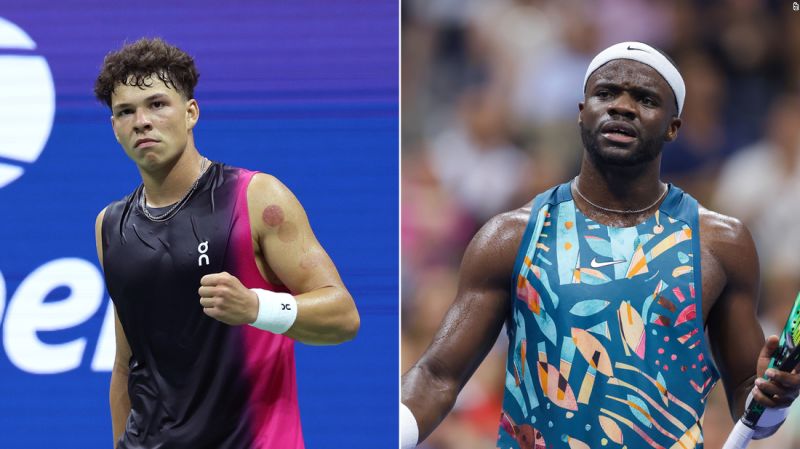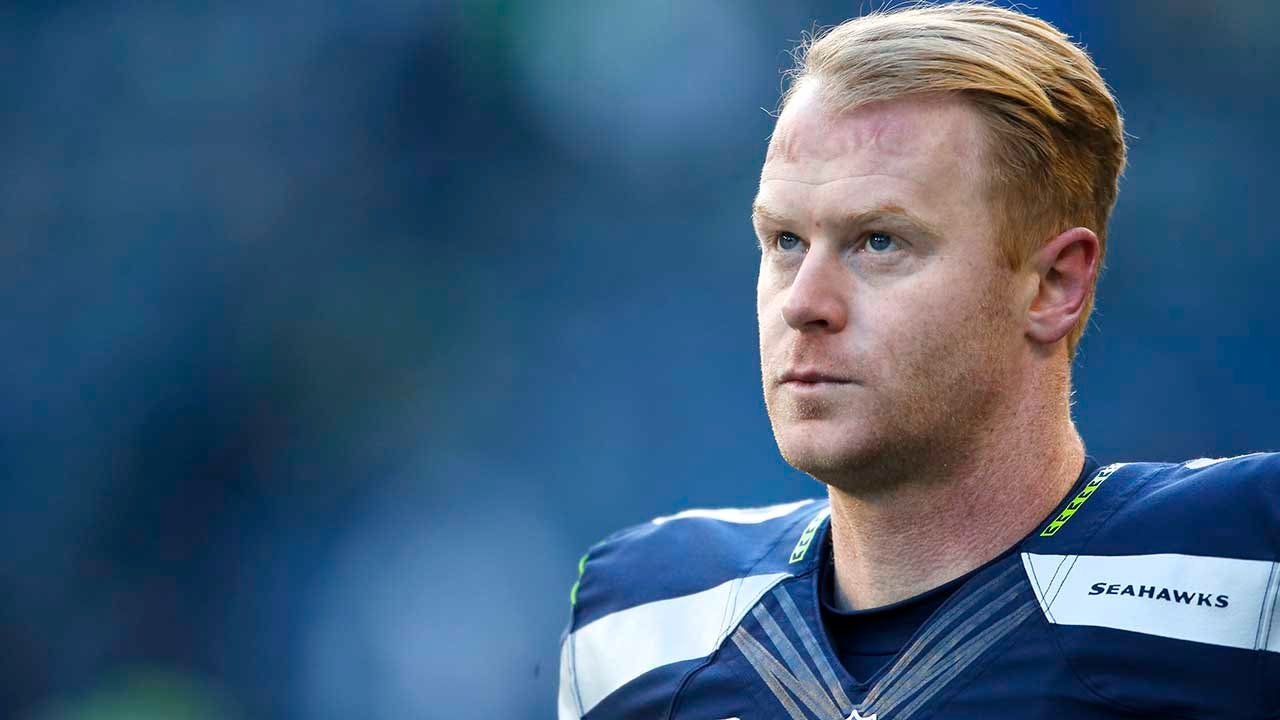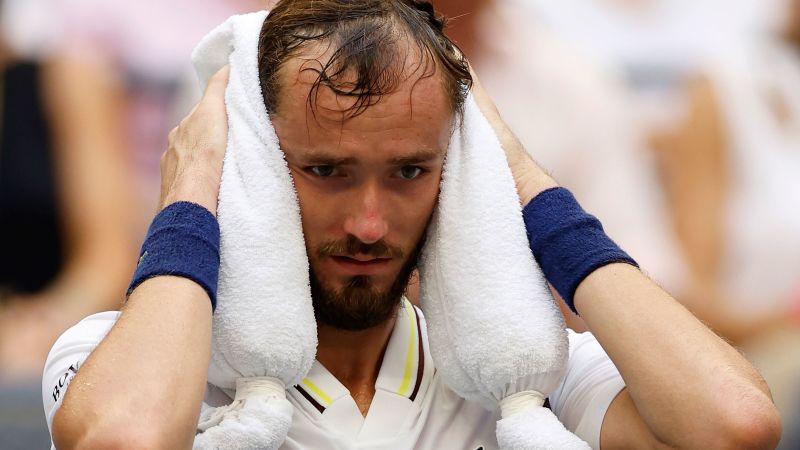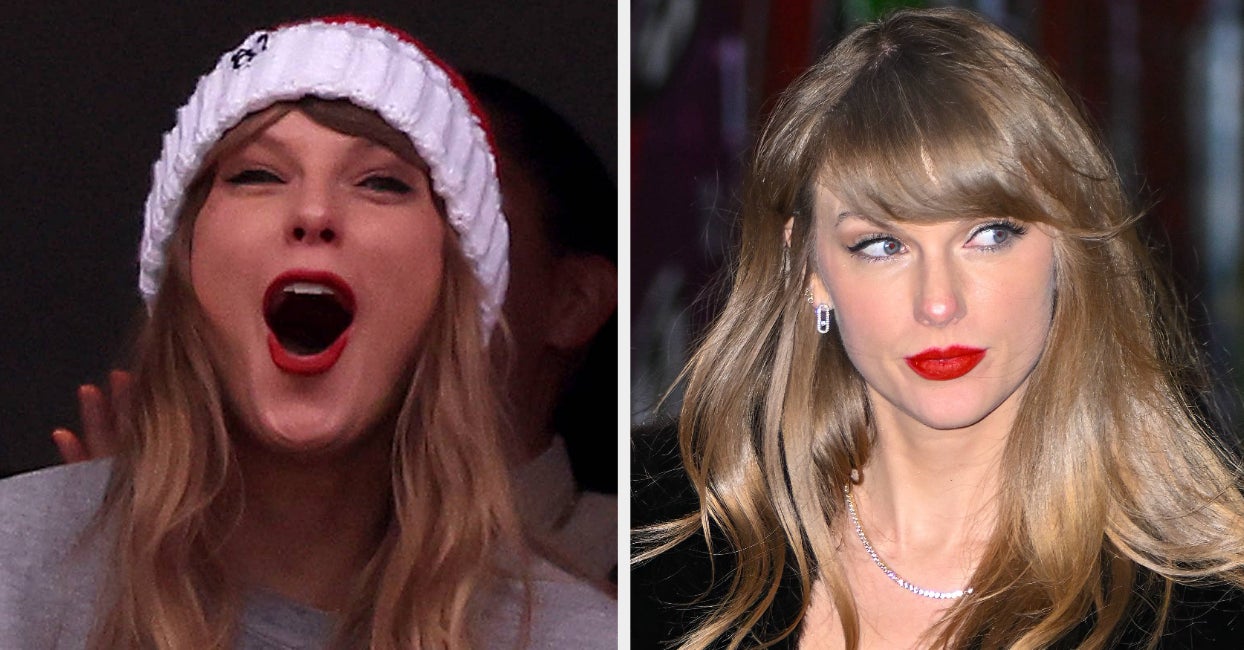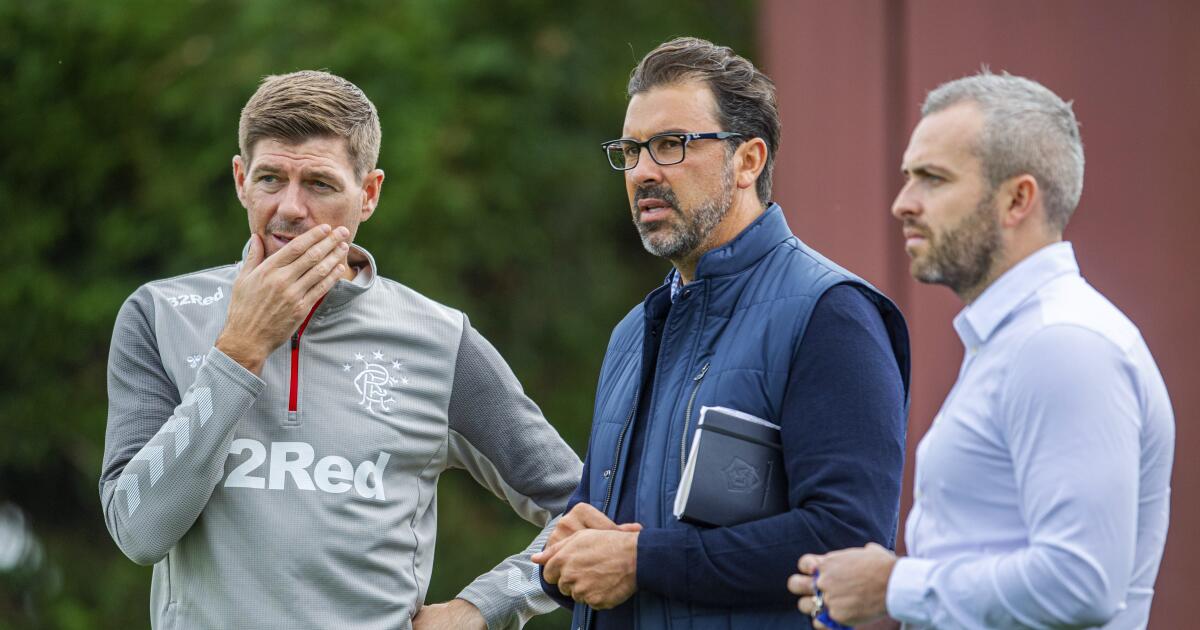Michigan’s choose-your-own-adventure season always had a championship ending
HOUSTON — There are two stories to tell about this Michigan team, and they’re really the same.
One is the story of a program that bent the rules, a coach who got suspended, a university that went to war with its conference, and a championship many will view with disdain.
The other is about a team that stuck together, a star running back who gave away turkeys at Thanksgiving and toys at Christmas, a coach who raises chickens and speaks in non-sequiturs and the genuine affection that held them together.
Both are true.
Michigan’s run to the national championship, punctuated by a 34-13 victory against Washington on Monday night at NRG Stadium, was a choose-your-own-adventure season. Call it an inspirational triumph if you want, a counterfeit championship if you must. The Wolverines earned the right to end this season on their own terms, trophy in hand.
“The ultimate goal was to win a national championship,” said running back Donovan Edwards, who ran for two touchdowns in the first quarter. “Everything played out perfectly, how it’s supposed to be. There’s no (better) feeling than to go through what we have and still come out on top. Perfect story. A lot of adversity. Coach Harbaugh’s not there for six games. Perfect story.”
It was a perfect ending, at least. Jim Harbaugh’s nine-year run at Michigan was building toward Monday night, a championship won with a punishing running game and a tenacious defense that rattled Washington quarterback Michael Penix Jr., the Heisman Trophy runner-up. Michigan wore down the Huskies in the fourth quarter and finished the game with two late touchdown runs from Blake Corum, the 5-foot-8 running back who carried the team on his shoulders.
After Michigan rallied to beat Alabama in overtime at the Rose Bowl, the on-field celebration was a mix of relief, exhilaration and jubilation; after all, the Wolverines had finally won a College Football Playoff game after back-to-back losses in the semifinals. Monday’s celebration was more like the fulfillment of destiny, a team that knew it was the best and proved it beyond a doubt.
“You know how mad these haters are?” defensive tackle Kris Jenkins shouted as confetti swirled and the stadium speakers blared “Mr. Brightside,” Michigan’s unofficial anthem. “They’re sick.”
Inside Michigan’s locker room, the air was thick with cigar smoke as Michigan’s offensive linemen presented a game ball to Sherrone Moore, the offensive coordinator who guided the Wolverines to four victories while Harbaugh was suspended. One of the last players to leave the field was Edwards, who climbed on the shoulders of left guard Trevor Keegan and shouted, “To the promised land!”
Michigan is an awkward champion for those who prefer their heroes unblemished and their villains irredeemable. There’s a lot to like about this Michigan team and its stars, from Corum to defensive back Mike Sainristil to quarterback J.J. McCarthy. But it’s impossible to tell the story of this season without referencing the scandals, the investigations and the multiple suspensions for Harbaugh, who was sidelined three games amid an NCAA investigation into recruiting violations and three more for the scouting and sign-stealing scandal that became a midseason bombshell.
Harbaugh sometimes referred to Michigan’s journey as a happy mission. After being suspended by the Big Ten in November, he told his team to play angry. The only way to understand this team is to recognize the duality: the joy that radiated from Harbaugh and his players every time they were together, and the anger that fueled “Michigan vs. Everybody.”
The anger came from allegations that a former staffer, Connor Stalions, coordinated a scheme to collect video footage of other teams’ signals. The team and its fans believed the scandal was overblown, designed to derail Michigan’s dream season. Others believed the allegations were serious enough to warrant an asterisk next to Michigan’s accomplishments.
“We’re innocent, and we stood strong and tall because we knew we were innocent,” Harbaugh said. “And I’d like to point that out. These guys are innocent. (To) overcome that, it wasn’t that hard because we knew we were innocent.”
This much is undeniable: The rest of the sport had plenty of chances to make sure Michigan didn’t hoist the College Football Playoff championship trophy: Penn State. Ohio State. Alabama. Washington. None of them did.
“This today, given everything we had to deal with, dealing with all the people who were out there hating and spewing and wishing this would take us down, this is the pinnacle right here,” athletic director Warde Manuel said. “I promise you that.”

“This is the pinnacle right here,” said athletic director Warde Manuel. (Photo: Thomas Shea / USA Today)
Emerging from the 2020 season, Harbaugh and the Wolverines were stuck in purgatory. Harbaugh was 49-22 in his first six seasons with no division titles and no victories against Ohio State. The rapturous anticipation that accompanied his arrival had turned to disillusionment and despair.
The 2020 season was the nadir of Harbaugh’s coaching career. He had a reputation as a program-builder who brought out the best in every team he coached, from the University of San Diego to Stanford to the San Francisco 49ers. Bringing a team together is his greatest strength. In the midst of a 2-4 season and the COVID-19 pandemic, the Wolverines were isolated, distant, disconnected and selfish.
“After one game we had lost, I got so fed up because everyone was just so content with playing in the game and were just super happy,” said Kwity Paye, who was drafted in the first round by the Colts after the 2020 season. “They were posting on Instagram and social media. The captions were like, ‘I’m a dawg!’. I just got so fed up, (like), ‘Man, we need to stop doing all of this bullshit and actually buy in.’”
Harbaugh was entering the final season of his contract, and many fans believed Manuel should cut him loose. Harbaugh and Manuel had frank conversations about the direction of the program and hammered out a contract that allowed Harbaugh to return with a reduced salary. In announcing that extension, Harbaugh said, simply, “We have a plan.”
Asked to recall the specifics of that conversation, Manuel chuckled and said, “If I ever write a book, I’ll save it for the book. Whatever he said, I believed, and it showed up.”
After that season, Harbaugh emailed his players. The exact words are fuzzy, but the general message was clear: Everybody needed to look in the mirror and think about what they could do better, Harbaugh included. Keegan got the email while he was watching football on the couch with his dad. The message resonated with him and many others.
“I was in kind of the same state as the program,” Keegan said. “I wasn’t playing to my abilities. I wasn’t starting. Our program wasn’t in the place it needed to be. It really brought fuel to the fire for me.”
The changes were immediate. Harbaugh reconfigured his staff and took a chance on Mike Macdonald, a first-time defensive coordinator from the Baltimore Ravens. He added music to practice and introduced a “Beat Ohio” drill that resembled something out of the Roman Coliseum. A dozen players transferred, and those who stayed — several of whom started in Monday’s championship game — pledged total commitment to the turnaround.
“We all knew if we want to actually do something with our careers, we gotta win,” right tackle Trente Jones said. “That is the most important thing in the world, to win, win, win. We ended up changing the whole culture around.”
“If you’re not winning in college football, it ain’t fun,” Keegan said. “The guys really took the initiative and looked themselves in the mirror and really changed this thing. It’s special to see the journey that we’ve been on.”
Of course, in its relentless pursuit of success, Michigan ran afoul of the NCAA and became the target of two investigations, one for recruiting violations that occurred during the COVID-19 dead period and one for the scouting and sign-stealing scandal that erupted in October.
The scandal had a farcical quality: a low-level staffer with grandiose plans and cheesy disguises, a mysterious private investigation, a trail of ticket purchases leading back to Michigan. The NCAA and the Big Ten didn’t find it amusing. After Big Ten commissioner Tony Petitti announced Harbaugh’s three-game suspension, Michigan responded with a legal challenge and a blistering statement from Manuel.
Michigan dropped its petition for a temporary restraining order a day before the sides were to meet in court.
“I regret nothing,” Manuel said, while emphasizing he respects Pettiti. “I promise you that.”
Just a few weeks ago, Harbaugh was banned from his own stadium and watched his team from the couch. Monday, he stood on the postgame stage sporting Michigan’s Turnover Buffs, a set of Cartier sunglasses given to players who force turnovers. No coach in modern college football has experienced what Harbaugh experienced this year: banished in exile one week, installed on the throne by season’s end.
“When you’re around him every day, you feel it emotionally, the ups and the downs,” said Harbaugh’s father, Jack. “The savior through it all has been the team, the coaches, the way they rallied. I really think they’ve grown through that experience.”

“The savior of it all has been the team, the coaches, the way they rallied,” said Jack Harbaugh, Jim’s father, of the ups and downs of Michigan’s title-winning season. Photo: Thomas Shea / USA Today
In February 2022, Harbaugh boarded a plane for the Twin Cities to interview for the Minnesota Vikings head coaching job. Many at Michigan believed he wasn’t coming back.
NFL rumors swirl around Harbaugh every offseason, but something shifted after he finally beat Ohio State and won the Big Ten in 2021. He’d put Michigan back on stable ground, and the timing seemed right to chase his dream of winning a Super Bowl. When the Vikings interview didn’t result in a job offer, Harbaugh called Manuel and delivered the news: He was shutting down the NFL talk and coming back to chase a national championship at Michigan.
The Wolverines were as close as they’d been in years, but they still had a long way to go. The gap was apparent when Michigan faced Georgia in the 2021 Orange Bowl and lost 34-11. The Wolverines would spend the next two years trying to find the edge they needed to get to the top.
It started with McCarthy, a five-star prospect and the highest-rated quarterback to sign with Michigan during Harbaugh’s tenure. The Wolverines didn’t have a lot going for them when McCarthy arrived in the winter of 2021. He embraced the pressure of being the quarterback who would lead Michigan out of the doldrums and back to prominence.
“He carried himself like, ‘I’m going to beat Ohio State. I’m going to be one of the best quarterbacks to walk through here,’” said Hunter Reynolds, a former Michigan safety. “I’m not saying other guys didn’t, but you just kind of felt it from him.”
After playing behind Cade McNamara as a freshman, McCarthy won a quarterback competition and led Michigan to a 13-0 start last season. The Wolverines went into CFP believing a national championship was theirs for the taking. Instead, they had an upset loss to TCU in the Fiesta Bowl in which McCarthy threw a pair of interceptions.
Michigan’s seniors banded together and made a pact to return for one more shot at a national championship. Now that they’ve done it, the timing again looks right for Harbaugh to consider the NFL.
Harbaugh hasn’t denied his interest, saying only that his sole focus was on Michigan’s championship run. Michigan’s leaders have made it clear that they want him to return, a stance reiterated by university president Santa Ono during Michigan’s postgame celebration.
“I’m doing my very best, and I hope that he will stay,” Ono said.
People within the program understand: Harbaugh has no more unfinished business at Michigan. The Super Bowl is the only mountain left to climb. But he’s also happy at Michigan, never more than he was Monday night.
“Any way he does it, I’m going to be happy for him,” Edwards said. “He’s earned it. He’s earned the opportunity to search for new opportunities. He deserves to stay and get a high contract. He deserves all of it. Whatever he does, I’m happy for him.”
There are, of course, other factors that could nudge Harbaugh back to the NFL: He faces the possibility of an additional suspension in 2024 stemming from his alleged failure to cooperate with the investigation into recruiting violations from the COVID-19 dead period. And he could be charged as a repeat violator in connection with the Stalions investigation.
Whatever the fallout may be, the Wolverines insist it won’t cheapen their championship. They were 0-2 in the CFP before the sign-stealing scandal came to light and 2-0 after. All of the hardest games on this year’s schedule were won after Stalions resigned. In their own telling, the actions of a low-level staffer are inconsequential compared with Corum’s sustained excellence, a ball-hawking secondary led by Sainristil and Will Johnson, a relentless pass rush and a bruising offensive line.
“Everything that came out, all the allegations, we proved to everybody in the world that wasn’t what’s going on,” Keegan said. “We didn’t need to prove it to ourselves. I’m a national champion. I really don’t care (if) people got opinions right now.”
More than once, Michigan made itself the main character of this college football season. It was only fitting that the Wolverines were the last team standing at the end. For years to come, players will gather for each other’s weddings, celebrate the births of each other’s children and reminisce about this season at team reunions.
Telling half of the story doesn’t do it justice. There’s no separating the good and the bad, the anger and the joy, the off-field controversy and the on-field dominance. You have to take it all.
And that’s what they did.

GO DEEPER
The Athletic 133: Ranking all of FBS after 2023, from Michigan to Kent State
(Top photo: Steve Limentani / ISI Photos / Getty Images)


